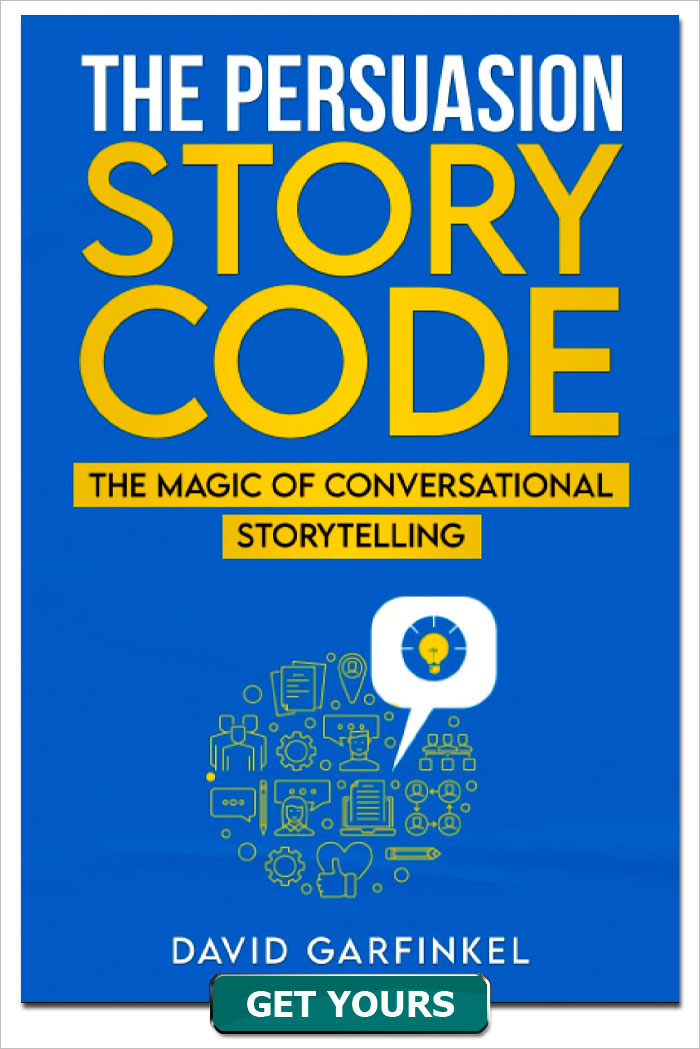Back To School With Napoleon Hill
Published by: David Garfinkel on 09-09-2019
Tweet
It’s September, and at least when I was a kid, this was back to school month.
Now, if you could do it all over again, what would you want to learn that they never taught you in school?
Me, I would have liked a way to know what other people believed to be true, so I could persuade them starting with what was true for them.
And, I would have liked some skills for making good decisions.
Learning these things in school would have been especially valuable for me as a copywriter and as an entrepreneur.
What about you?
Well, along comes Napoleon Hill with a new book, out just last year. Napoleon Hill, the author of the classic Think and Grow Rich, is no longer with us, of course. He died 49 years ago. But the Napoleon Hill Foundation released a new book of his, “Success Habits,” last year.
And just in time for the new school year, we have just the perfect material for this podcast.
So the question that was never answered in school for me, is: How do I better understand what other people believe… and how do I make better decisions for myself?
The answer is: Accurate thinking.
Now here’s the most important reason you, as a copywriter, want to develop your accurate thinking skills:
You’ll know a lot more about how to take a prospect from where they are to where you want them to be. And that means, more sales.
But there’s more. A lot more. Like this:
Copy is powerful. You’re responsible for how you use what you hear on this podcast. Most of the time, common sense is all you need. But if you make extreme claims... and/or if you’re writing copy for offers in highly regulated industries like health, finance, and business opportunity... you may want to get a legal review after you write and before you start using your copy. My larger clients do this all the time.
Looking ahead
So today we’re going to talk about what accurate thinking is, and how to get better at it.
I want you to realize that accurate thinking isn’t about always being right and winning every argument. It’s also not about stripping emotion from your life. Those would not be helpful to a copywriter or a business owner.
Accurate thinking is about knowing the difference between fact and opinion, and being able to figure things out better in a way that serves you and your clients and customers.
It’s about being able to write copy that’s compliant, which is rapidly becoming a necessity if you want to do business online. And it’s about being clear-headed rather than uncertain and confused.
What is accurate thinking?
In a nutshell, accurate thinking is about getting from point A to point B, first in your mind, in the most efficient and most powerful way.
It involves a set of skills that we’ll go over today.
It’s very real-world.
I know a number of top copywriters — people responsible for hundreds of millions of sales with their copy and the copywriters they honcho — who I would absolutely call accurate thinkers.
Now, nobody would ever mistake any of these copywriters for Mr. Spock on Star Trek. That’s not what accurate thinking is all about.
But I’ve had spirited discussions in person with each of them.
And I’ve seen them solve problems in a systematic, intelligent way.
I admire each of them quite a lot. And if we were to look at their own track records, you can’t argue with success. I am certain that their ability to think accurately has a lot to do with their success.
Why this is important, and how you can use what you hear today
Now, in typical Napoleon Hill style, the writing in this book is not dry, academic, or abstract.
If you ever took a class in logic or critical thinking, you might recognize some of the things we’re going to talk about. But this is a world apart from the programmed boredom of high school and college.
Remember: The way we think pretty much determines the actions we take, and therefore, the course of our lives.
So you can “think positive” all you want. But if you’re not thinking accurately as well, you’re going to propel yourself down the wrong road and positively end up at a different destination than the one you had hoped for.
Look at accurate thinking like cooking or playing golf. You can’t master the whole activity from what you hear in one podcast. After all, the book is called “Success Habits,” and habits take a while to develop. You create habits through repetition and intention.
Accurate thinking is a habit worth developing, because it will help you with your goal-setting, your decisions, your communications, and, for this podcast, most important, the quality and effectiveness of your copy.
What Napoleon Hill said about Accurate Thinking
According to Napoleon Hill, there are three parts to accurate thinking:
1) Inductive reasoning - starting out with an idea that may not even exist in reality, and developing it to a conclusion
2) Deductive thinking - starting out with a fact you know to be true, or believe to be true, and developing it to a conclusion
3) Logic - looking at a current situation or problem, and comparing it to something similar you’ve experienced in the past.
Of all of these, the third one is probably the most valuable. You can use it in a number of ways.
First, to see if something makes sense. If someone tells you they have a new car engine that uses gasoline and gets 250 miles to the gallon, logic alone will tell you that’s not very likely. You would be skeptical. Anyone would, who knows anything about cars.
Why? Because your previous experience tells you that cars that run on gas, or petrol, get up to 30 miles per gallon, and some hybrid cars get upwards of 130 miles per gallon. So a car that would get nearly twice that on gas alone doesn’t seem logical, on the face of it.
You would need to use your deductive reasoning to ask questions and determine if what the person was saying, makes sense.
How this plays out as a copywriter and business owner
As a copywriter, you need to reverse-engineer the process. When you have a claim you’re making in your copy, you want to put yourself in your prospect’s shoes, looking at their thinking as the same way yours would be with the mileage on the engine.
As you get better at accurate thinking, you can predict what kind of analogies you can use that will track with your customers’ own experience, and what kind of thought process they would need to go through to believe you and want to buy your product.
What Napoleon Hill Said About How to Think Accurately
He said there are two steps you need to take to be an accurate thinker:
First, learn how to separate fact from fiction
Second, take the facts and divide them: Into important facts, and unimportant facts
So, what’s an important fact?
Napoleon Hill says it’s any fact you can use to achieve your goal… or… any fact you can use to fulfill a desire that leads to your goal.
This is so good. You see people make a mistake with this all the time when they’re looking at statistics.
There are maybe 50 or 100 numbers you can look at with the performance of an online campaign, but maybe only 5 or 6 that are going to make a difference. For example, open rates usually don’t matter. If you have a huge open rate and a non-existent clickthrough rate, then what difference does the open rate make?
But if you have a low open rate and a high enough clickthrough rate to make the campaign very, very profitable… again, what difference does the open rate make?
It’s an unimportant fact.
Knowing the difference between important facts and unimportant facts will save you a lot of time and frustration, and help you get more of what you want, more often.
How to test facts
Suppose someone says something to you. How can you evaluate how accurate what that person said, is?
Here are three of Napoleon Hill’s best questions on the subject:
1. Is that person a recognized authority on the subject?
2. Does the person have a profit-motive that could cause them to give you inaccurate information for their benefit?
3. What is the person’s reputation for being honest?
Here’s Why You Want to Get Better at Accurate Thinking
As Napoleon Hill said, “The only thing you have complete control over is the power of thought.
“Don’t give that up to anyone else.”
And the only way to have maximum control over your thoughts is to get better and better at accurate thinking. You can find out more in the book “Success Habits” by Napoleon Hill.
Get the Book Here
Keywords: Success Habits









